Crankshaft and Bearing Cleaning and Inspection — LDE, LED, LFJ, LXV, 2H0, LUW, LFH
Special Tools
| • | EN-45059 Torque Angle Sensor Kit |
For equivalent regional tools, refer to Special Tools .
Crankshaft End Play, Check
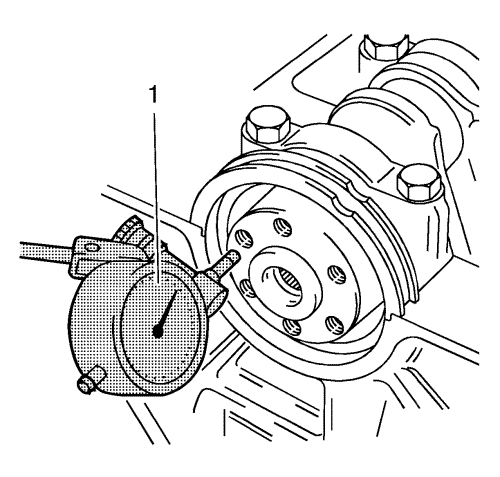
Note : Crankshaft attached with crankshaft bearing caps.
- Install the GE-571-B gauge (1).
| 1.1. | Install in the holder on the front of the engine block. |
| 1.2. | Place the dial gauge plunger against the crankshaft and adjust. |
- Measure the longitudinal play of the crankshaft.
| 2.1. | Move the crankshaft in the longitudinal direction. |
| 2.2. | Permissible crankshaft end play: 0.100–0.202 mm (0.0039–0.0080 in) |
- Remove the GE-571-B gauge.
Crankshaft Out-of-Round, Check
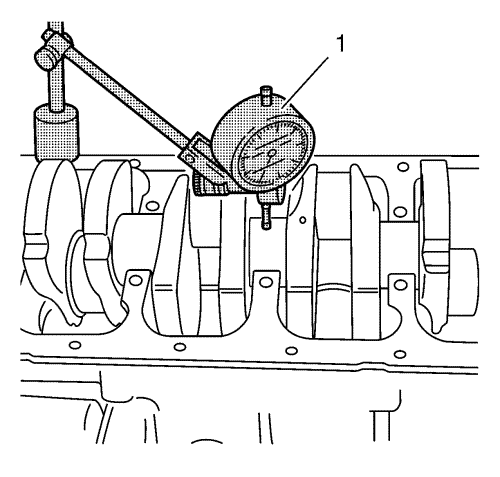
Note: Crankshaft removed.
- Insert the crankshaft in the engine block.
- Install the GE-571-B gauge.
| 2.1. | Attach to the bracket on the engine block. |
| 2.2. | Place the dial gauge plunger against the crankshaft bearing journal and adjust. |
- Check the rotational play of the crankshaft.
| 3.1. | Turn the crankshaft evenly. |
| 3.2. | Maximum permissible rotational play: 0.03 mm (0.001 in). |
- Remove the GE-571-B gauge (1).
Check Crankshaft Bearing Clearance (With Plastigage)
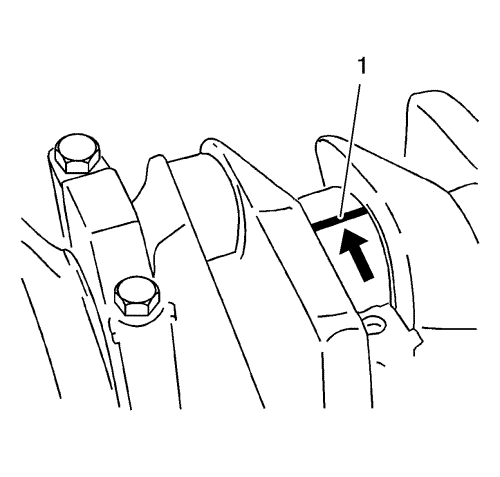
Note:
| • | Do not rotate the crankshaft. |
- Lay on plastigauge.
Lay out plastigage (flexible plastic thread) around the entire width of the con-rod bearing journal (1).
Caution: Refer to Fastener Caution in the Preface section.
Note:
| • | Note the correct tightening sequence. |
| • | The bolts can be reused for checking the crankshaft bearing play. |
- Install the crankshaft bearing cap. Tighten the 2 crankshaft bearing cap bolts in 3 passes. Use the EN-45059 sensor kit:
| 2.1. | First pass to 50 N·m (37 lb ft) |
- Remove the 2 crankshaft bearing cap bolts.
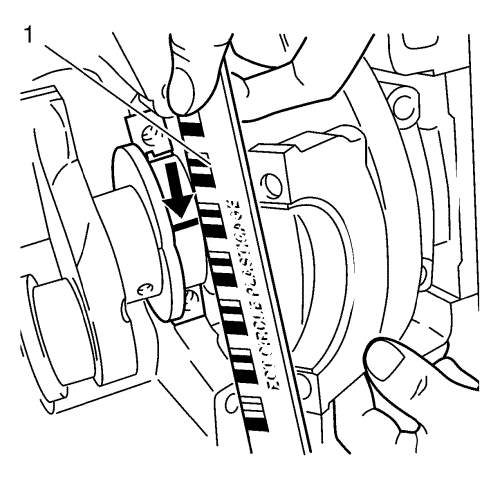
Note: When reading the value, do not confuse millimetres and inches on the measuring scale (1).
- Measure the crankshaft bearing play.
| 4.1. | Compare the width of the flattened plastic thread (arrow) to the measuring scale. |
| 4.2. | Permissible crankshaft bearing play: 0.005–0.059 mm (0.0002–0.0023 in). |
Check Crankshaft Bearing Clearance (With Micrometer Gauge Internal Measuring Device)
Note:
| • | Note the correct tightening sequence. |
| • | The bolts can be reused for checking the crankshaft bearing play. |
- Install the crankshaft bearing cap with the crankshaft bearing clips to the cylinder block.
Tighten the 2 crankshaft bearing cap bolts in 3 passes. Use the EN-45059 sensor kit:
| 1.1. | First pass to 50 N·m (37 lb ft) |
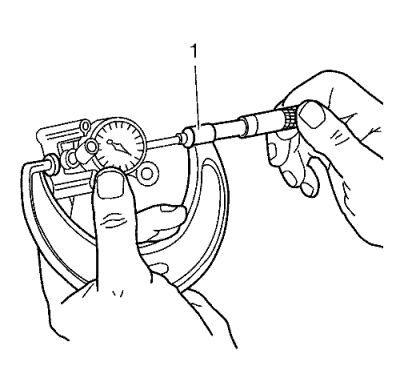
- Install the inner plunger and calibrate with the micrometer gauge (1).
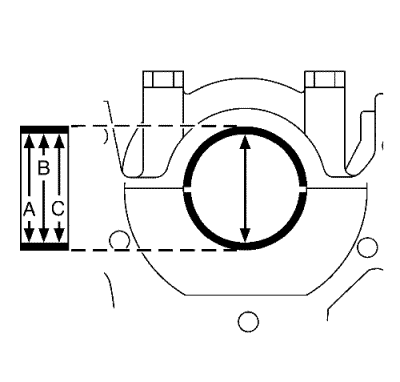
- Measure the crankshaft bearing diameter at 3 points.
| • | Measure at points A, B and C with the internal measuring device. |
| • | Calculate the average crankshaft bearing diameter. |
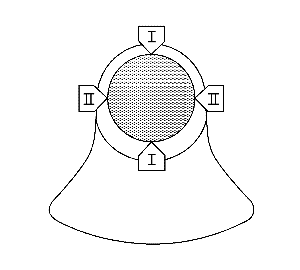
- Measure the crankshaft bearing journal diameter at 2 points.
Measure at points I and II with the micrometer gauge.
- Calculate the average crankshaft bearing journal diameter.
Formula: I + II/2.
- Determine the crankshaft bearing play.
Calculation formula: average crankshaft bearing diameter minus average crankshaft bearing journal diameter.
- Nominal-Actual comparison.
Permissible crankshaft bearing play: 0.005–0.059 mm (0.0002–0.0023 in).
| © Copyright Chevrolet. All rights reserved |






